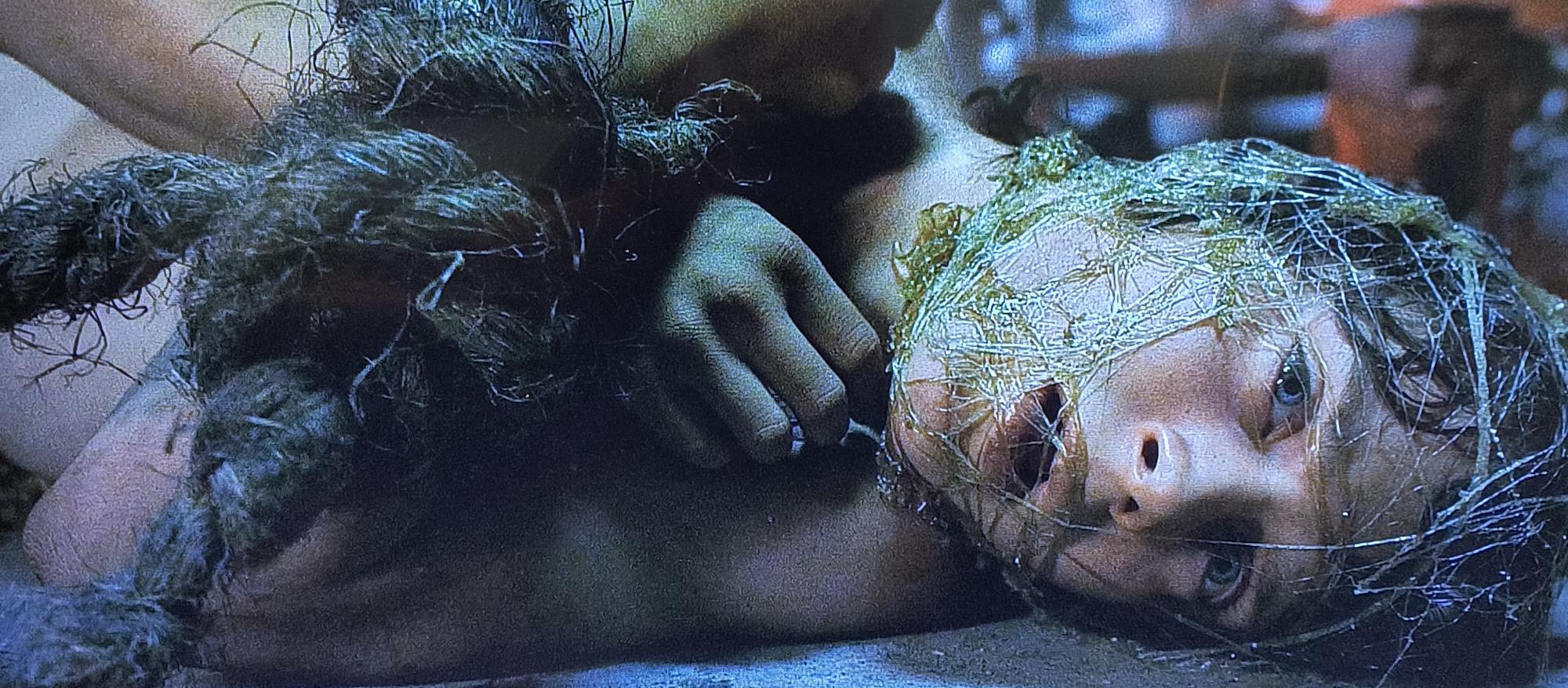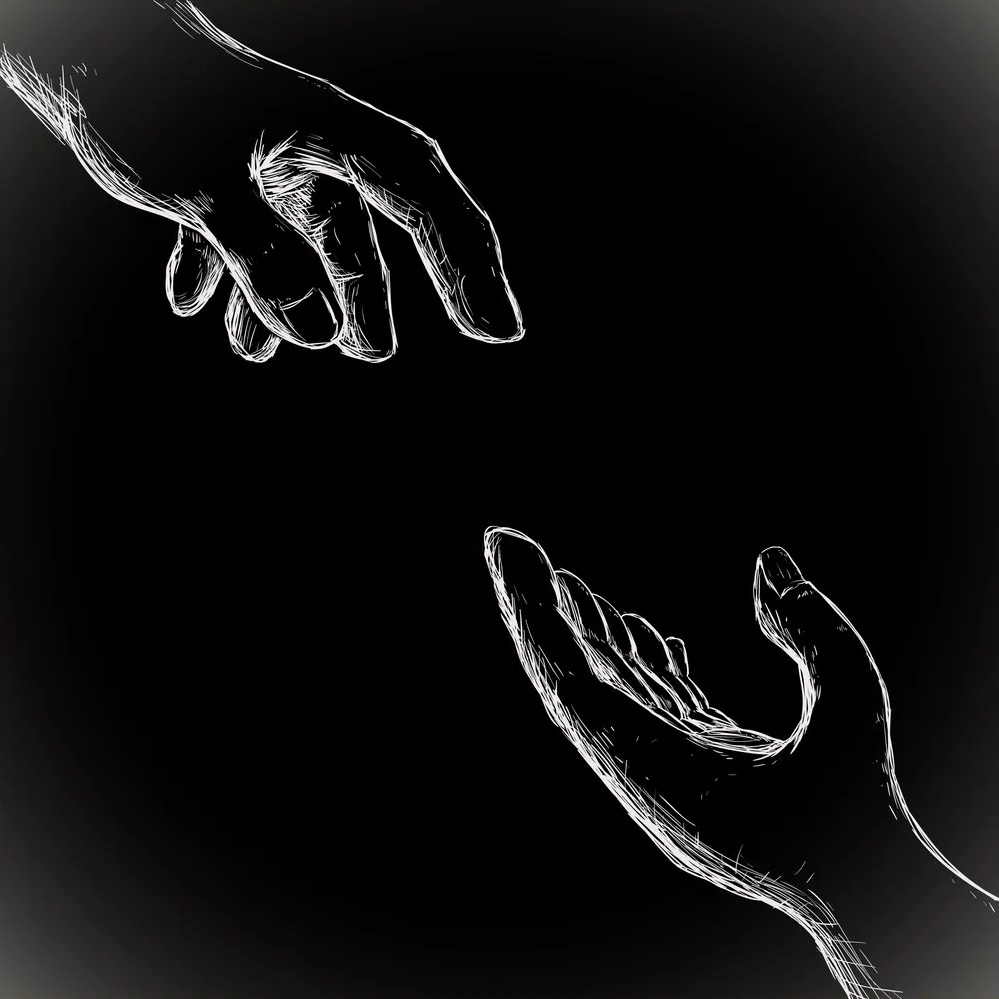Yet Even Now
By Anthony Casperson
7-13-24
Those of us who’ve watched the third installment of The Lord of the Rings film trilogy are likely to remember the general events surrounding the Shelob incident.
Gollum’s desire for the One Ring is so strong that he decides to lead Frodo to the giant spider. But because Sam watches every movement of Gollum with vigilance, something needs to be done to separate the two hobbits. So, Gollum throws the remainder of their food away and sets Sam up as the culprit. And Frodo gets angry at his loyal friend, sending him away.
We then have the whole event of Frodo chased by the spider through her webs, and stabbing the hobbit with a paralyzing stinger. Sam comes back to save the day. But orcs arrive and take Frodo back to their base, stating that the hobbit was still alive. And so Sam raids the encampment and finds his friend awake again.
The various perspectives given help the audience understand the general sense of the story—and adds a little suspense here and there about the location of the ring.
But have you ever thought about what it would’ve looked like, if we only saw things from Frodo’s perspective?
He’d taken the side of Gollum in the argument because Sam seemed to not be giving the little fellow a chance. Then, Frodo pushed the only person who’d been with him for the entire journey away. The sense of betrayal he felt overcame any sense of returned loyalty.
After all of that, our protagonist followed the advice of Gollum—whom he trusted—right into a whole mess of webs. He got stuck. And then, heard Gollum taunting him in the situation. Betrayal, for certain. However, Frodo finally got free and thought he’d escaped. Only to be attacked and stabbed—for what had to feel like was the hundredth time since he’d left the Shire.
Everything went black. And the next thing Frodo knows, he wakes up with the sound of orcs and goblins around him. No sword. No chain shirt. And no ring. He’s alone in a worse mess than he’d been in before. Because at least as spider food, the ring wouldn’t have been about to return to hand of its master.
And Frodo’s alone.
With the knowledge that Sam had been right about Gollum. And if only he’d have listened, he wouldn’t be here now. The mistake of the past made clear only because of the present disaster. If only he could apologize for the mistake.
But sorrow had to wait for later. Because a monstrous shadow ascended the steps, with the sound of menacing growls. Only, this wasn’t an enemy prowling. Rather, it was the best sight in the world. Sam. The one he’d treated with utter disregard, here to save from the terrible disaster.
Frodo immediately apologizes. And without missing a beat, Sam accepts and readies the rest of the rescue mission.
In that moment, Sam could’ve asked for more. And gotten it. He could’ve taken the ring to Mt. Doom without the disloyal Frodo. He could’ve left the whole matter of the ring behind back when he found the food that Gollum had tossed down the cliff. But he didn’t do any of those things. No, Sam didn’t give up on Frodo. And was right there to rescue when the consequences of disbelief proved themselves.
Even when condemnation was deserved, loyalty reached out a hand to save.
In our summer blog series, we’ve been looking at the self-proclaimed biography of God. Merciful and gracious, slow to anger, and abounding in steadfast love and faithfulness. And how such a statement reveals that the God shown in the Old Testament is the same God lived in the life of Jesus from the New Testament. Love and justice entwined in one God.
And as we come to the book of Joel, we see the bio spoken of again. Only this time, it’s from the perspective of people wallowing in the consequences of their unfaithfulness. And even though God is rightly judging them, his prophet calls the people to ask for forgiveness. And find the outstretched hand of God that’s ready to save them from the mess they got themselves into because of their disloyalty.
In Joel 1, the prophet speaks of a plague of locusts that had cut through the land. What one swarm didn’t cut through, the next devoured. Then, a third swarm. And a fourth. The people had nothing left. And the prophet points out to the nation’s leaders that their faithlessness was the reason. So, what they needed to do was repent.
And when we reach Joel 2, he prophesies that another wave of judgement is coming. This is likely a forewarning of the coming Assyrian Empire, only using the metaphor of the previous locust invasion to illustrate the prophet’s point.
This Day of the Lord prophecy gets drastic as we reach Joel 2:2-10 and see his descriptions. The sky darkens because of their vast numbers. Horses and chariots leaping from the mountains. An army in singular purpose, set to destroy. And they’re everywhere. On the walls. Through the windows. A blanket of locusts covering everything in sight. It’s almost to the point of saying that they’re crawling up the people’s noses and down their throats. That’s the level of pervasiveness.
Disaster is here. Now. At our doorstep. So the prophet calls for the people to seek forgiveness.
He doesn’t blame God for the troubles—the consequences of their disloyalty to his covenant. The prophet never blames God for how harsh and unloving it is to batter the Northern Kingdom of Israel time after time after time, until they have nothing. And then hit them again.
No, he calls for the people to repent and seek forgiveness.
And then, when we get to verses 11-14, we see Yahweh himself—the one who’s executing his righteous Day of the Lord—call out to the faithless people. He says, “Yet even now…” Even when the disaster is upon you…. When you’re feeling like it’s too late…. When the deserved harshness of righteous judgement presses in on you….
Yet even now, it’s not too late.
Return with all your heart. Rend your heart, instead of just your clothes. Because he is the God who is gracious and merciful, slow to anger, and abounding in steadfast love. Yahweh isn’t a god who punishes for the sake of his own pride. Or because he secretly despises his creation. No, his judgement is for the purpose of leading his people back to him. He’s waiting, saving hand outstretched, for our repentance.
He brings judgement in the hope that we’ll return to relationship with him.
This is how God is loving. How he’s loyal to his covenant people. His mercy and grace extend to us even when everybody else would’ve just left us to our own trouble. He could work through other people. Write us off to our own misery. Let us be devoured by the consequences of our own actions.
But he doesn’t. He chases after us. Fights to reach us. And waits for us to seek forgiveness.
We get confused about God’s love shown through his judgement when we fail to admit that the consequences are our own fault. When we fail to accept the hand offering us forgiveness, because we think that we deserve only the good. That’s when the “love” of God contorts to something more akin to “Just do whatever you want.”
The love and covenant faithfulness of God is found even in the darkest moments of judgement. When the sun and the moon are blotted out, when disaster covers us, love remains. It reaches out a hand to save those who take it. And this true love of God is heard in his call for us to repent.
In the rest of Joel 2, the prophet shows the good of God’s love by speaking of everything that the people lost being returned. Every single thing taken by chapter 1’s locusts. Almost item line by item line. The people who had no grain, no wine, no oil, can find themselves satisfied with all of that returned and more. By the hand of God.
Because he is gracious and merciful, slow to anger, and abounding is steadfast love and faithfulness.
We witness God’s love all the more when, in our darkest moment, he offers a loving hand saying, “Yet even now…”
And we must ask ourselves, will we take it in repentance?



